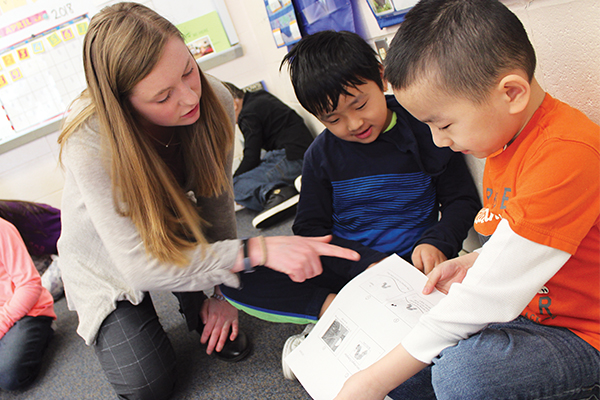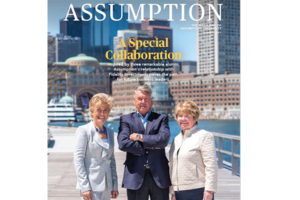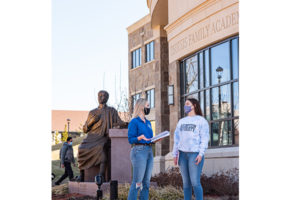
By Kaitlyn Friel ’19
Learning to work, interact with, and be inspired by different cultures is not only critical to one’s development but also an important life skill.
This spring, students enrolled in EDU302 Teaching English Language Learners (ELL) worked with students in 10 Worcester-area elementary, middle, and high schools. Throughout the semester, students assisted teachers, prepared lessons, and worked one on one with ELL students in the classroom.
“The most common misconception is that there doesn’t need to be a specialized class for learning how to teach ELLs,” said Assumption Education Professor Elizabeth Walsh. “Our hands-on work brings an extra set of hands to each classroom or program where we volunteer. The Assumption students are a consistent weekly presence in the schools, which directly benefits the English Language Learners. They form a nice relationship, set and achieve goals, and teach each other a great deal. … Just a few minutes of extra assistance can make a substantial difference to an English Language Learner.”
Elizabeth Browne ’19, who is double majoring in elementary education with a concentration in STEM and classics with a concentration in Latin, volunteered at Canterbury Street Computer-Based Magnet School. “I have learned how different every English Language Learner is and how they all need different strategies and levels of support,” she said. “It really takes getting to know the child and working with them to figure out what works best for them.”
Classmate Stephanie Cota ’19, an English and elementary education double major, also worked with students at Canterbury. Cota said she was able to observe the students and their social norms – adopted from the culture in which they grew up – which helped her to customize lesson plans based on the students’ abilities. “[This experience] taught me how difficult it can be to learn English,” she said. “I love [measuring the ELL students’ progress] at the beginning of the semester compared to now to see how much each of the students has grown in confidence in speaking and comprehension of English.”
This real-world experience is something Mary Sealey, principal of Canterbury Street Computer-Based Magnet School, feels is important for future teachers. “This is a valuable model for both the College and for Canterbury,” she said. “There is a lot of value in the cycle of learning that exists among all three groups – Canterbury teachers, Assumption students, and Canterbury students – each group provides valuable learning experiences for the other.”
According to Prof. Walsh, Sealey isn’t the only principal who enjoys and sees the benefits of hosting Assumption students. “Everyone is so grateful for the additional support in the classroom,” she said. “They are also so pleased with the quality of work and professionalism of our students. I am delighted and confident to send our students out into the field every semester because I know that they are bringing the very best Assumption has to offer to the schools in our community.”


